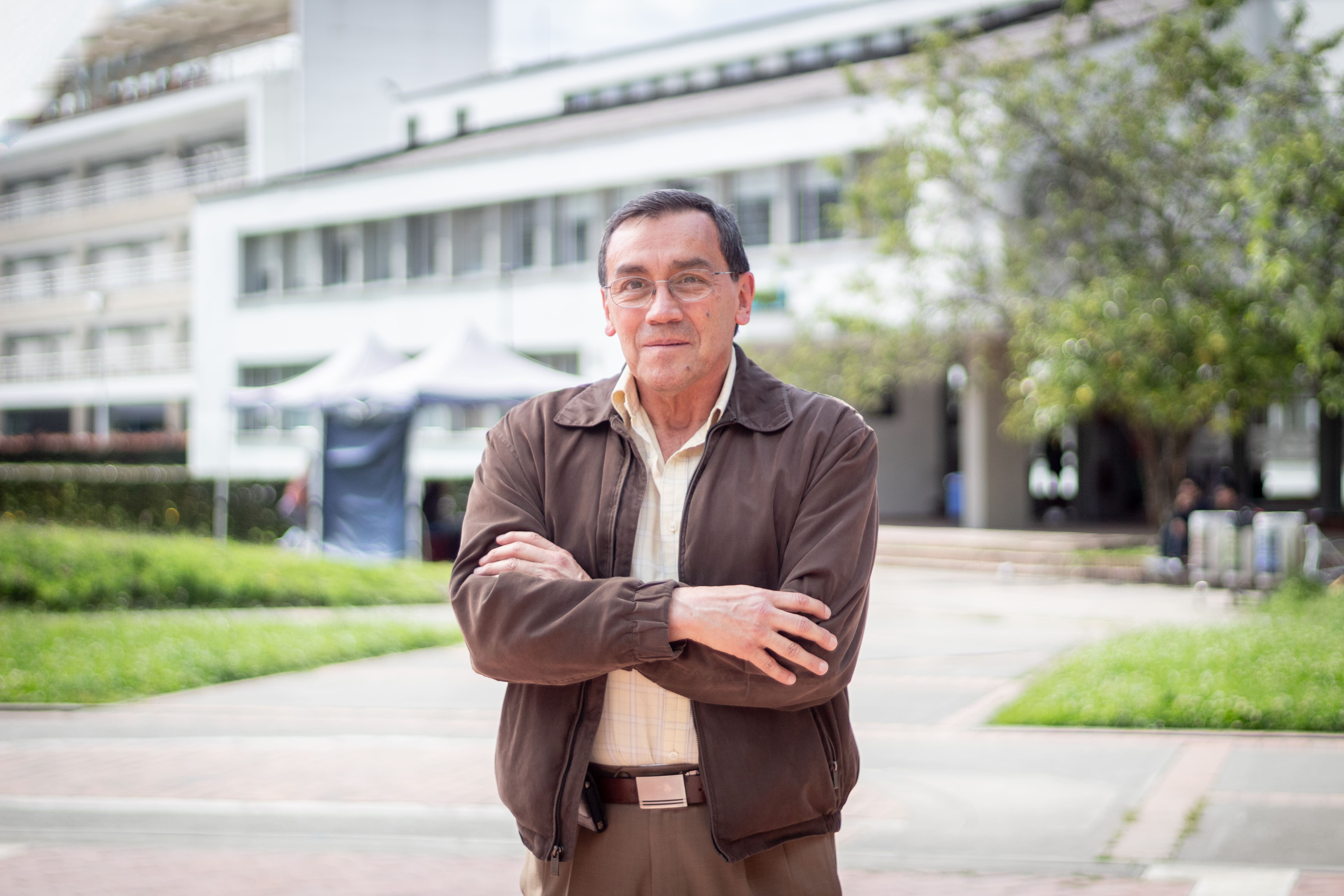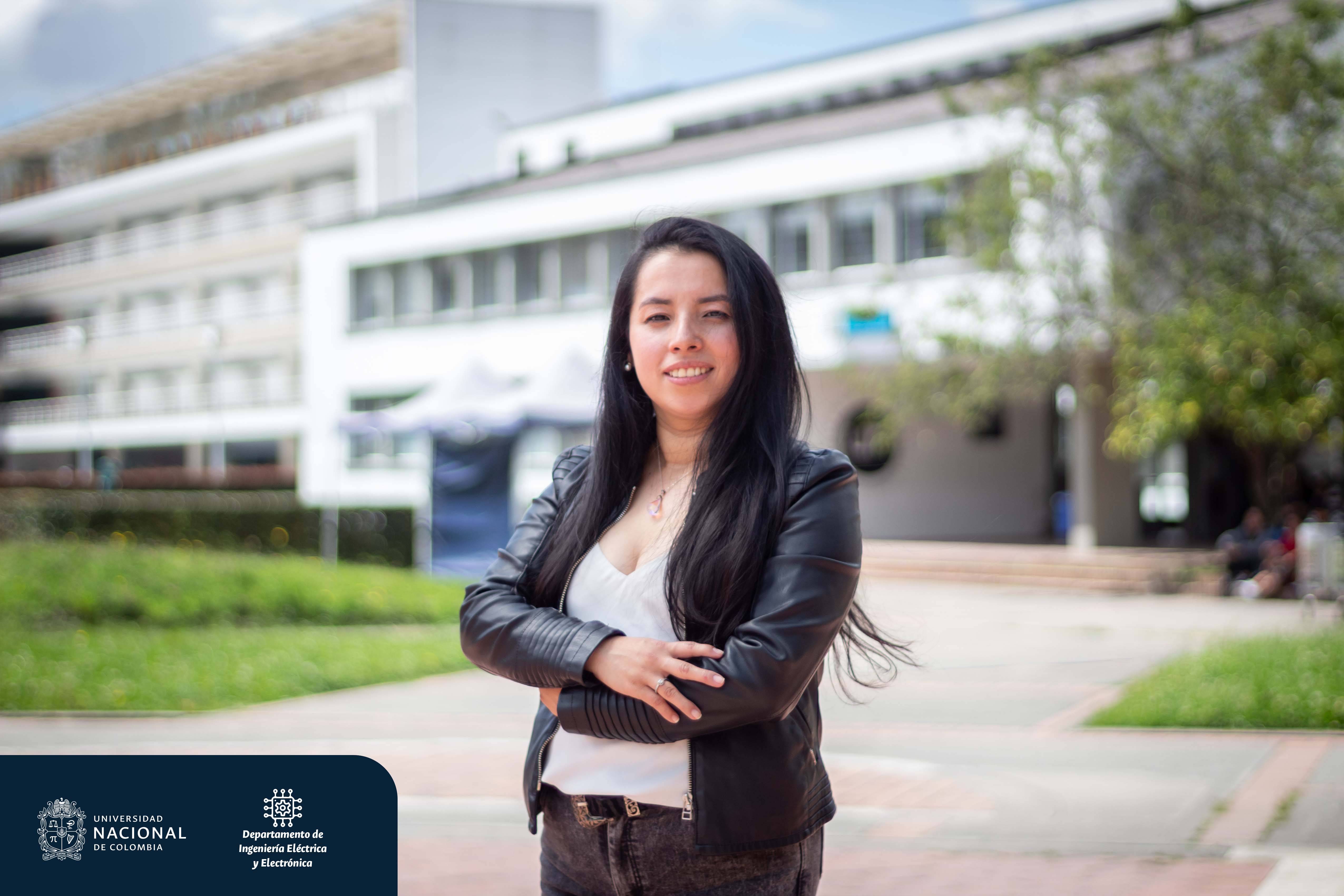

El programa curricular de Ingeniería Eléctrica en la sede de Bogotá, es un programa de formación universitaria de pregrado de la Facultad de Ingeniería de la Universidad Nacional de Colombia, con una duración total de diez (10) semestres en jornada diurna, que confiere el título de Ingeniero(a) Electricista.
El programa curricular de Ingeniería Eléctrica en la Universidad Nacional de Colombia ha tenido en varias ocasiones los mejores resultados en pruebas encaminadas a valorar la calidad de la educación, como el ECAES, a nivel institucional y a nivel individual; cuenta con un plan de estudios que promueve la formación integral y la autonomía; sus egresados se desempeñan exitosamente en diversos ámbitos: el sector eléctrico, el sector industrial, la consultoría, la planificación, la investigación, etc. Todas estas son evidencias de la elevada calidad del programa de Ingeniería Eléctrica y la solidez institucional de la Universidad Nacional de Colombia.

Hernando Díaz Morales
Oficina:
Extensión:
Correo: coocurie_fibog@unal.edu.co

Coordinadora Administrativa y Académica
Angie Paola Chivatá
Oficina: 222, Edificio 453 Aulas de Ingeniería
Extensión: 14004
Atención presencial: Miércoles de 9:00am a 4:00pm
Correo: daciee_fibog@unal.edu.co

Asistente de Radicación
Joan Hernandez Bautista
Oficina: 01 CADE primer piso
Extensión: 13699
Correo: jhernandezb@unal.edu.co

Asesor Curricular y Trámites Estudiantiles
Ing. Luis Antonio Rodríguez Pérez
Oficina: 02 CADE primer piso
Extensión: 13657
Atención presencial: Todos los lúnes y miércoles de consejo (Ver calendario de trámites estudiantiles en el apartado 'Otros Trámites')
Correo: aciee_fibog@unal.edu.co
The curricular program of Electrical Engineering at the Bogota campus is an undergraduate program of the Faculty of Engineering of the Universidad Nacional de Colombia, with a total duration of ten (10) semesters in daytime, which confers the title of Electrician Engineer.
The curricular program of Electrical Engineering at the Universidad Nacional de Colombia has obtained on several occasions the best results in tests aimed at assessing the quality of education, such as the SaberPro, at the institutional and individual level. It has a curriculum that promotes comprehensive education and autonomy. Their graduates perform successfully in various fields: the electrical sector, the industrial sector, consulting, planning, research, etc. All these are evidences of the high quality of the Electrical Engineering program and the institutional strength of the University.
The applicants to the program have complete average education in the Colombian educational system, with skills and curiosity about basic sciences. Preferably, with aptitude to work in team, use of computer tools, autonomous learning and with skills for the analysis and comprehension of texts.
The Electrician Engineer of the Universidad Nacional de Colombia is a professional with a solid technical background to conceive, design, implement and operate electric power systems and has developed personal and interpersonal skills that allow them to lead or participate in projects that aim to solve problems at the local, national or global level with a high sense of social responsibility and ability to update their knowledge.
Based on the achievement of the educational goals set for the Electrical Engineering program of the University, the graduate can act with competence in all fields related to electrical systems where it is necessary to carry out functions of design, planning, manufacturing, construction, installation, auditing, consulting, operation, maintenance, control, automation, administration, management, research or teaching, among others. In particular, power and electrical systems mainly include the generation, transformation, transmission, distribution and commercialization of electrical energy and alternative sources of energy.
Group
Required Credits
Free-choice Credits
Mathematics, Probability and Statistics
24
3
Materials Science
3
0
Physics
15
0
Economic and Administrative Sciences
3
6
Computing
3
0
Engineering Tools
3
3
Total
51
12
Total Foundation
63
Group
Required Credits
Free-choice Credits
Circuits and fields
11
0
Signals, systems and control
10
0
Electrical Engineering
6
2
Electronics
8
0
Power Systems
9
3
Professional context, innovation and research
19
3
Total
63
8
Total Professional
71
The Department of Electrical and Electronic Engineering has the following research groups:
In particular, these groups have contributed significantly to the development of Electrical Engineering in the country through: